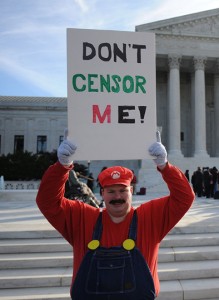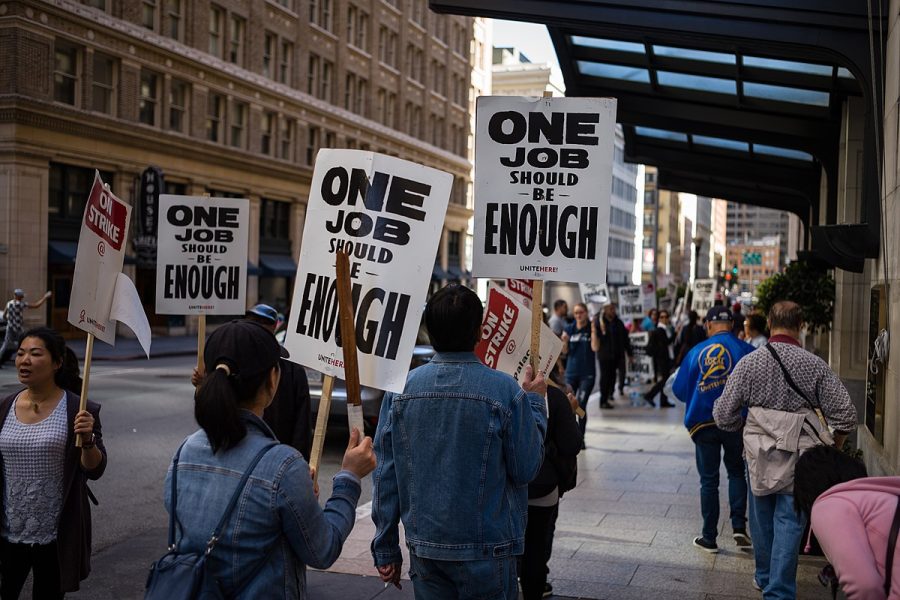
The Supreme Court ruled June 27 in a 7-2 decision that California’s proposed law to restrict the sale of violent video games to minors is unconstitutional.
Justice Antonin Scalia stated on behalf of the majority that “The act forbidding sale or rental of violent games to minors does not comport with the 1st Amendment.”
The proposed law would have made it a criminal offense to sell violent video games to minors and leave businesses open to fines up to $1,000 for doing so.
The decision could have established that video games are legally different from other mediums that are considered forms of protected speech.
The majority decision of the court has instead established a landmark precedent, ruling video games should not be viewed as legally different from books, movies, music or other mediums.
“Video games qualify for First Amendment protection,” the ruling stated. “Like protected books, plays, and movies, they communicate ideas through familiar literary devices and features distinctive to the medium.”
The decision also provides future mediums of communication an air of legitimacy when arguing for protection under the 1st Amendment.
In the ruling the Court declared “The basic principles of freedom of speech . . . do not vary with a new and different communication medium.”
California’s legal argument in the case rested on evidence that allegedly showed video games, due to the nature of their interactivity, having more of an influential effect on users than other mediums.
They further argued that because of this increased influence, the harmful effects of violent content in games on minors would be magnified and therefore video games needed to be treated differently than other mediums.
The majority of the court disagreed.
Pointing to the effect of violent content on minors from other mediums, the court declared that as far as video games were concerned, “Any demonstrated effects are both small and indistinguishable from effects produced by other media.”
While the decision certainly placed video games on the same legal ground as other forms of protected speech, the medium must still contend with the possibility of legal challenges.
Justice Clarence Thomas, one of the two dissenting votes disagreed with the idea that the law violated the 1st Amendment.
“The freedom of speech, as originally understood, does not include a right to speak to minors without going through the minors’ parents or guardians,” Justice Thomas wrote in his dissenting opinion.
Justice Stephen Breyer, the other dissenting vote, further disagreed with the court’s assertion that California had not presented sufficient evidence of the harmful effect of violent video games upon minors.
In his dissenting opinion Justice Breyer wrote, “Unlike the majority, I would find sufficient grounds in these studies and expert opinions for this Court to defer to an elected legislature’s conclusion that the video games in question are particularly likely to harm children.”
The court’s decision pointed to the fact that no precedent existed for keeping violent content from minors — except for industries selfregulating themselves, something the video game industry has done through the Entertainment Software Rating Board (ESRB).
In addition, the court declared that the law would violate the rights of parents who would allow their children to play violent video games.
The case, known as Brown v. EMA, dealt with the 2005 legislative proposal of California Senator Leland Yee (D-California), who was displeased with the court’s decision.
“As a result of their decision, Wal-Mart and the videogame industry will continue to make billions of dollars at the expense of our kids’ mental health and the safety of our community,” said Yee.
Michael D. Gallagher, president and CEO of the Entertainment Software Association, the company responsible for the ESRB, reacted differently than Yee, stating the decision should mark the end of politician’s seeking to legislatively restrict video game content.
Gallagher suggested, “Instead, we invite them to join with us to raise awareness and use of the highly effective tools that already exist to help parents choose games suitable for their children.”











